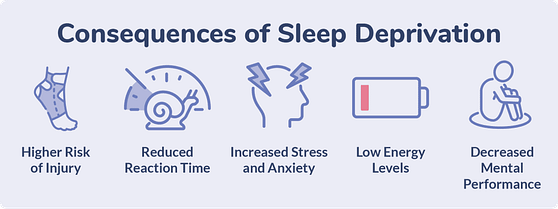Sleep is a vital component of overall health and well-being, yet many teenagers struggle to get enough rest. With busy schedules, academic pressures, and the allure of digital devices, sleep often takes a backseat. However, the importance of sleep for teen mental health cannot be overstated. In this blog post, we’ll explore why sleep is crucial for adolescents, how lack of sleep impacts mental health, and practical tips for improving sleep habits.
Why Sleep is Crucial for Teens:
During adolescence, the body undergoes significant physical, emotional, and cognitive changes. Sleep plays a critical role in supporting these developmental processes. Here are a few reasons why sleep is essential for teens:
- Brain Development: Sleep is crucial for brain maturation. During sleep, the brain consolidates learning, processes information, and strengthens neural connections, which are essential for cognitive functions such as memory, attention, and problem-
solving. - Emotional Regulation: Adequate sleep helps regulate emotions and manage stress. Teens who get enough sleep are better equipped to handle emotional challenges and are less likely to experience mood swings, irritability, and anxiety.
- Physical Health: Sleep supports overall physical health by boosting the immune system, promoting healthy growth and development, and aiding in tissue repair and muscle growth.
- Mental Clarity and Performance: A well-rested brain enhances alertness, concentration, and academic performance. Teens who prioritize sleep tend to perform better in school and have sharper focus and decision-making abilities.
The Impact of Sleep Deprivation on Mental Health:
Lack of sleep can have serious consequences for teen mental health. Here are some ways sleep deprivation affects adolescents:
- Increased Risk of Depression and Anxiety: Sleep deprivation is strongly linked to higher rates of depression and anxiety in teenagers. Chronic lack of sleep can exacerbate feelings of sadness, hopelessness, and worry.
- Impaired Cognitive Function: Sleep deprivation impairs cognitive functions such as memory, attention, and executive function. This can lead to difficulties in learning, poor academic performance, and increased frustration.
- Emotional Instability: Lack of sleep makes it harder for teens to regulate their emotions, leading to increased irritability, mood swings, and emotional outbursts.
- Risky Behaviors: Sleep-deprived teens are more likely to engage in risky behaviors, such as substance use, reckless driving, and unsafe sexual practices, due to impaired judgment and impulse control.
- Physical Health Issues: Chronic sleep deprivation can contribute to a range of physical health problems, including obesity, weakened immune function, and cardiovascular issues, which can further impact mental health.
Tips for Improving Sleep Habits:
Promoting healthy sleep habits is essential for supporting teen mental health. Here are some practical tips to help teens get the rest they need:
- Establish a Consistent Sleep Schedule: Encourage teens to go to bed and wake up at the same time every day, even on weekends. Consistency helps regulate the body’s internal clock and improves sleep quality.
- Create a Relaxing Bedtime Routine: Develop a calming pre-sleep routine that may include activities such as reading, listening to soothing music, or practicing relaxation techniques like deep breathing or meditation.
- Limit Screen Time Before Bed: Reduce exposure to screens at least an hour before bedtime. The blue light emitted by phones, tablets, and computers can interfere with the production of melatonin, a hormone that regulates sleep.
- Create a Sleep-Friendly Environment: Ensure the bedroom is conducive to sleep by keeping it dark, quiet, and cool. Comfortable bedding and a clutter-free space can also promote better sleep.
- Encourage Physical Activity: Regular physical activity can help teens fall asleep faster and enjoy deeper sleep. However, it’s important to avoid vigorous exercise close to bedtime.
- Monitor Caffeine Intake: Advise teens to limit their consumption of caffeine, especially in the afternoon and evening, as it can disrupt sleep patterns.
Sleep is a fundamental aspect of teen mental health and overall well-being. By understanding the importance of sleep and implementing healthy sleep habits, teens can enhance their emotional regulation, cognitive function, and physical health. Let’s prioritize sleep and support our teenagers in getting the rest they need to thrive during this critical stage of development. A good night’s sleep is not just a luxury; it’s a necessity for a healthy and happy life.





